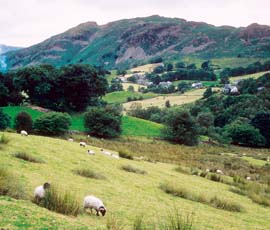Government pledges support for uplands sector

The coalition government has underlined its commitment to a thriving hill farming sector, based on core livestock businesses, in a report on the uplands.
The report formed the government response to recommendations by the Environment, Food and Rural Affairs Committee.
In its response, the coalition said hill farmers would be “encouraged and supported” to improve livestock businesses and to diversify as managers of the natural resources and ecosystems of the uplands.
The government said it wanted hill farmers to continue as food producers and stewards of valuable natural resources.
But it admitted it was harder for them to make a living out of agriculture alone, compared with lowland farmers.
The EFRA recommendations included a proposal for an uplands theme to be created within the new Rural Development Programme for England (RDPE). That proposal has been accepted by the government, which agreed it should help provide targeted support to upland areas through specific and national schemes.
The government has also confirmed that funding will be available within the RDPE (2007-13) to allow all farmers in Severely Disadvantaged Areas to enter Uplands Entry Level Stewardship.
Existing guidance will be updated to make clear what commoners must do to ensure their applications are processed quickly.
Unnecessary cost burdens that undermine the competitiveness of hill farmers – taking particular account of the forthcoming recommendations of the Farming Regulation Task Force – will also be removed, the government pledged.
The government’s response added a commitment to ensure that reform of the Common Agricultural Policy after 2013 supported both the competitiveness of hill farms and made “adequate payment” to secure the provision of public goods from the uplands, beyond those provided by the market.
But EFRA’s call for a new definition of the term “uplands” in line with other EU states met a lukewarm response.
The government said it had no plans to introduce a new statutory definition of the term because it believed the existing classification system provided a workable framework to help hill farmers become more economically secure.

